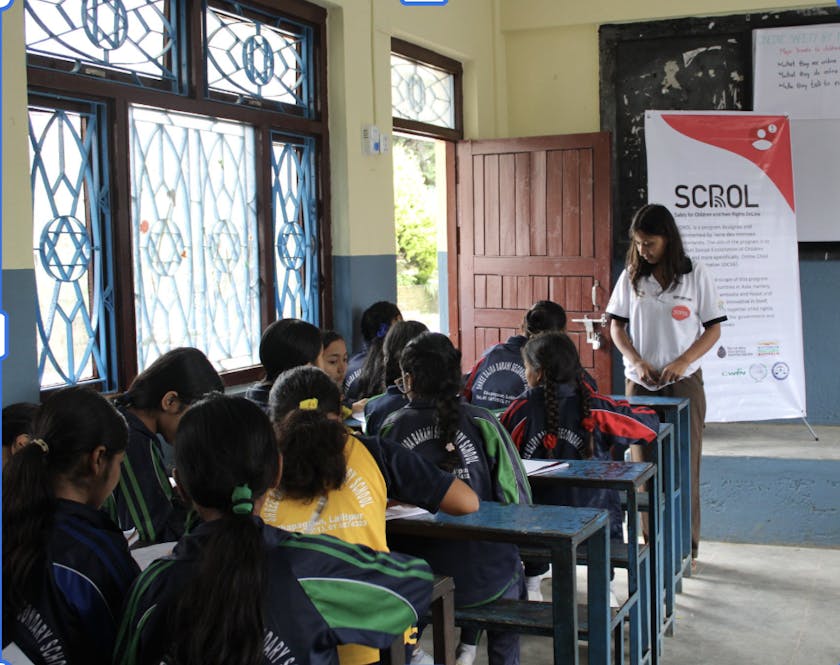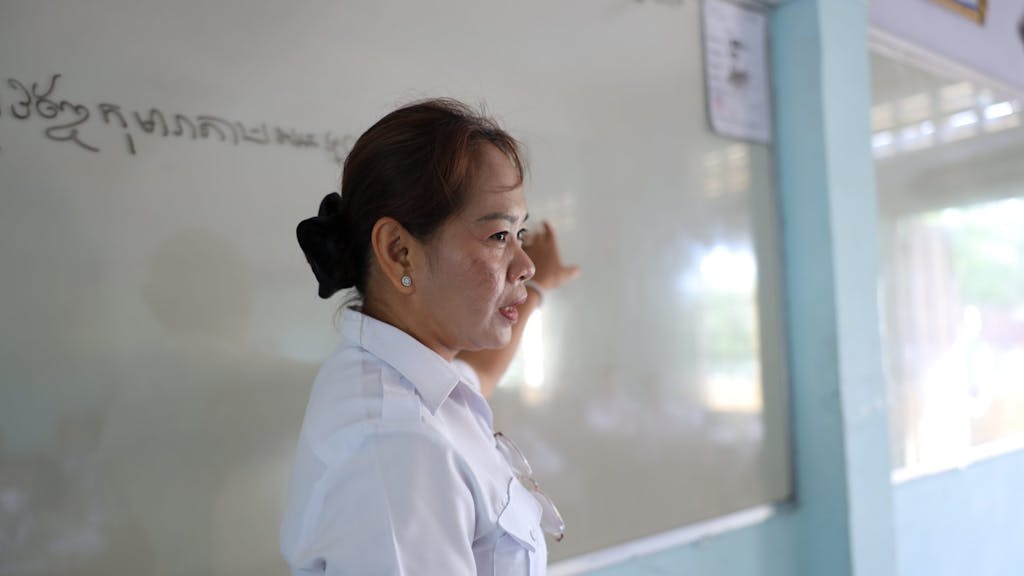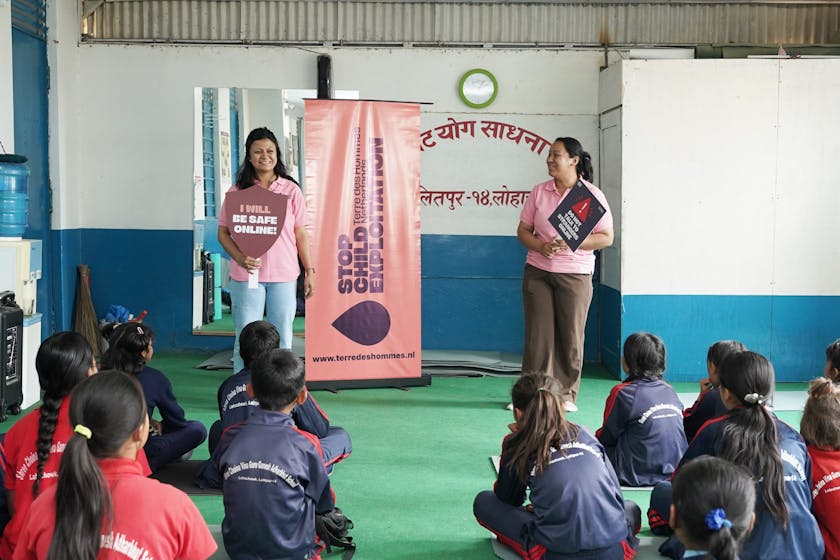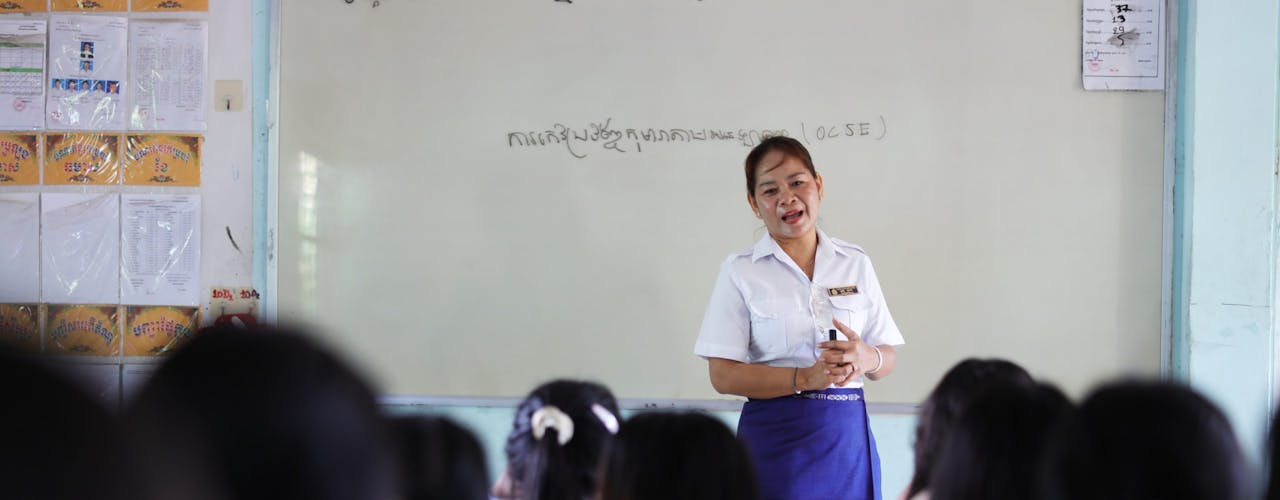Why schools need to prioritise teaching online safety: examples from our work in Asia
This World Literacy Day, we emphasise the importance of integrating online protection into educational curricula. This will build a young generation that is digitally confident, resilient, and safe.
A teenage girl in Nepal received a strange message on her Facebook account inviting her to play a game and win prize money. She could have clicked it. Or simply ignored it. But she did neither.
In fact, she reported and blocked the dubious account. Not only that, she urged her friends to report the account too. How did she learn how to act so effectively?
She learnt this at her school, during a lesson on online safety delivered as part of our awareness campaign under the SCROL programme in Nepal. Through just one session, students reported an average of 20% increase in knowledge on how to protect themselves online.
Why awareness sessions alone are not enough

However, stand-alone awareness sessions are insufficient to ensure long-term, scalable, and sustainable impact. To achieve this, online safety must be integrated into the school curriculum. This ensures that learning becomes institutionalised, brings about increased accountability, credible standards and further scope for monitoring and evaluation. Additionally, it ensures that children can access a safe and reliable space to report and discuss concerns about their online usage.
This systemic pathway will enable progressive, substantial knowledge and ensure prolonged and stronger preventive action and response.
Global and regional crisis
It is estimated that worldwide, close to 300 million children have experienced online sexual abuse and exploitation. The Asia region reports high levels of vulnerability among children. For instance, according to the Disrupting Harm Report by UNICEF, ECPAT International and Interpol, 1 in 5 children in the Philippines, 11% of children using the internet in Cambodia, and close to 400,000 children in Thailand have reported having faced online abuse and exploitation. South Asia reports the highest number of online child sexual abuse materials.
Addressing the issue of online child sexual exploitation is therefore the need of the hour, and education systems must step up.
Terre des Hommes’ Approach – Training Teachers and Influencing Policy
At Terre des Hommes, we work to ensure this by training teachers, providing learning material and advocating with the government and other stakeholders for effective policy changes.
Ms Prum Sopheap, a high school teacher from Cambodia, says, “Through the training from the SCROL project, I learnt a lot. This was a wake-up call and an important lesson for me, our children and society. We learnt how online exploitation works and its prevention methods.”
Together with other high school teachers in Cambodia, Ms Sopheap integrates online safety lessons in her classes, stressing the importance of activating protection settings and exercising caution online.

Through the training from the SCROL project, I learnt a lot. This was a wake-up call and an important lesson for me, our children and society. We learnt how online exploitation works and its prevention methods. I now teach online safety lessons in my classes.
— Prum Sopheap, high school teacher, Cambodia
In Nepal, through our advocacy with the Curriculum Development Centre (CDC), online safety has been successfully integrated into the class 9 computer science syllabus.
“We began sensitising the CDC in May 2024 on the importance of teaching about online safety. This was subsequently followed by consultations with several line departments from the government, including the formation of a multi-ministry task force comprising ministries representing education, women and children, information and communication technology, and the Nepal Police. Together with these duty bearers, we developed a draft content of teacher guides and curriculum for classes 4-12 and sent it to the CDC. In the academic year of June 2025, prevention from online child exploitation was included in chapter 6 of the computer science curriculum of class 9”, says Ms Neeta Shrestha, our Project Officer in Nepal, describing the process of advocacy and policy change.
Further additions to the curriculum for other classes will be instituted by the Curriculum Development Centre in due course.

In the academic year of 2025, prevention from online child exploitation was included in chapter 6 of the computer science national curriculum of class 9
— Neeta Shrestha, Project Officer, Nepal

Looking Forward
As we celebrate our achievements this World Literacy Day, we remind ourselves that the internet will continue to shape children’s lives in powerful ways. Equipping them with the tools to protect themselves must therefore be part of their everyday learning, just like reading or mathematics. When schools integrate online safety into their curriculum, children are not only informed but empowered to respond and prevent harm.
Education systems, therefore, hold the key to building a safer digital future for children, and now is the time to act.





